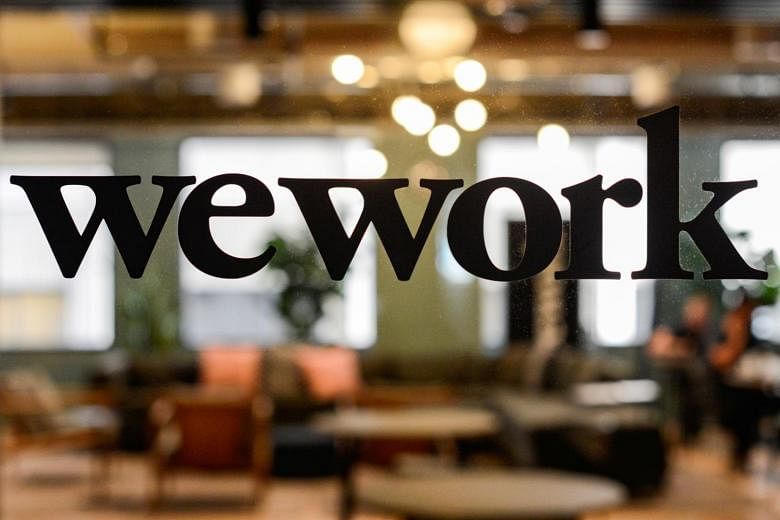NEW YORK (NYTIMES)- WeWork, the shared-office company already coping with a failed public offering and a corporate shake-up, disclosed a new problem on Monday (Oct 14): possible formaldehyde contamination of hundreds of phone booths at some of the buildings it leases.
In a note to tenants at an unspecified number of its sites in the United States and Canada, the company said it was removing the booths because of "potentially elevated levels of formaldehyde caused by the manufacturer."
"We have identified approximately 1,600 phone booths in some of our US and Canada locations that may be impacted," said the note, a copy of which was obtained by The New York Times. "These phone booths are being taken out of service immediately, and will be removed from your location as soon as possible."
The company said it would remove another 700 booths for testing "out of an abundance of caution."
Several tenants who received the note posted copies on Twitter, with commentary attached.
"Bad month for wework," wrote one, Rachel Z Kaplowitz. "Now they're removing a bunch of phone booths in our building b/c of formaldehyde concerns. Over under on us getting our security deposit back when we move out later this month?"
Formaldehyde is used primarily to produce resins for particleboard products and as an intermediate in the synthesis of other chemicals, according to the Environmental Protection Agency. Exposure to formaldehyde can cause respiratory symptoms, and eye, nose, and throat irritation, according to the agency, which considers it a probable human carcinogen.
In a statement that echoed the note sent to tenants, WeWork said that a complaint about odor and eye irritation had prompted it to investigate the booths. The company declined to say when it received the complaint.
"WeWork performed an analysis, including having an outside consultant conduct a series of tests on a sampling of phone booths," the company said in its statement. "Upon receiving results late last week, we began to take all potentially impacted phone booths out of service."
The phone booths are a key feature of WeWork's shared-office concept because they offer private places for making calls in otherwise open-layout spaces. The company told tenants in its note that it would provide "alternative quiet spaces" where phone booths are unavailable.
Addressing the phone booth problem could be costly for WeWork, which just months ago appeared set for a lucrative public offering and is now trying to stay afloat.
The company abandoned the planned offering last month after prospective investors questioned its unusual corporate structure, its continuing failure to turn a profit and its sky-high valuation.
The Japanese conglomerate SoftBank, a major investor, valued the company at US$47 billion (S$64,3 billion) in January. But as the planned offering approached, the company struggled to persuade money managers to buy shares at a valuation as low as US$15 billion.
Before withdrawing the share sale, the company said that Adam Neumann, its charismatic but unpredictable co-founder, would step down as chief executive. Under mr Neumann's leadership, WeWork grew at a torrid pace to become the largest private tenant in Manhattan and a major player in London, San Francisco and other big cities.
Other elements of Mr Neumann's grand plans have failed to gain traction.
WeLive, an effort to apply the shared-office-space concept to dormitory-style living in a way that Mr Neumann envisioned as integral to the company's future, has not expanded beyond its first two sites.
Last week, the company said that another subsidiary, WeGrow, a for-profit private school in the Chelsea neighborhood of Manhattan that opened in 2018, would close next year.
The school, which has about 100 students and where tuition for three-year-olds starts at US$36,000, has described its mission as "elevating the collective consciousness of the world by expanding happiness and unleashing every human's superpowers."

